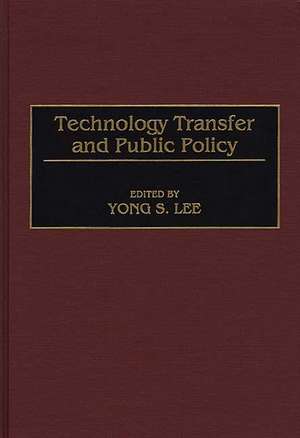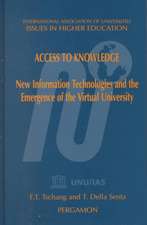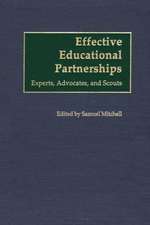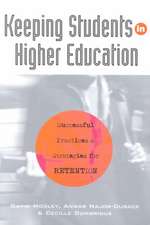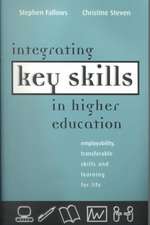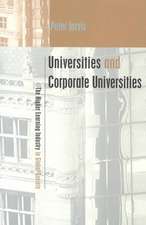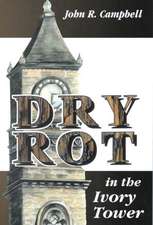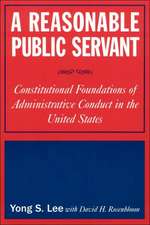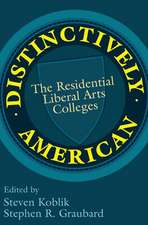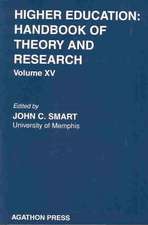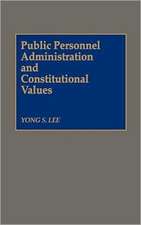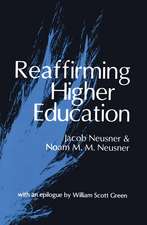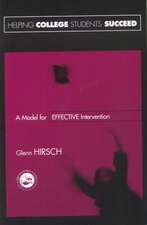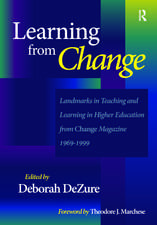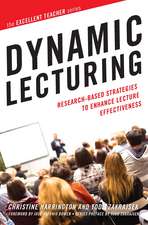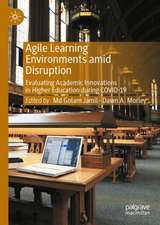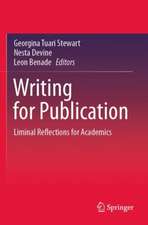Technology Transfer and Public Policy
Autor Yong Leeen Limba Engleză Hardback – 29 sep 1997 – vârsta până la 17 ani
Preț: 440.96 lei
Preț vechi: 709.56 lei
-38% Nou
Puncte Express: 661
Preț estimativ în valută:
84.40€ • 91.71$ • 70.95£
84.40€ • 91.71$ • 70.95£
Carte tipărită la comandă
Livrare economică 22 aprilie-06 mai
Preluare comenzi: 021 569.72.76
Specificații
ISBN-13: 9781567200843
ISBN-10: 1567200842
Pagini: 328
Dimensiuni: 156 x 235 x 30 mm
Greutate: 0.69 kg
Ediția:New.
Editura: Bloomsbury Publishing
Colecția Praeger
Locul publicării:New York, United States
ISBN-10: 1567200842
Pagini: 328
Dimensiuni: 156 x 235 x 30 mm
Greutate: 0.69 kg
Ediția:New.
Editura: Bloomsbury Publishing
Colecția Praeger
Locul publicării:New York, United States
Notă biografică
YONG S. LEE is Professor of Political Science at Iowa State University. Well known for his contributions to research on science and technology policy and public administration, he is author of many articles, book chapters, and monographs on government-university-industry relations, the dynamics of technological innovation, and new science and public administration. His previous Quorum book is Public Personnel Administration and Constitutional Values (1992).
Cuprins
Figures and TablesPrefaceIntroductionTechnology Transfer and Economic Development: A Framework for Policy Analysis by Yong S. LeeCross-National Case StudiesU.S. Science and Technology Policy in Cross-National Perspective by Leonard L. LedermanToward an American Industrial Technology Policy by Renée J. Johnson and Paul TeskeTechnology Transfer Strategies and Economic Development in South Korea by Sung Deuk Hahm and Christopher PleinTechnology Transfer and Agricultural Development in West Africa by R. James Bingen and Brent SimpsonAmerican University-Industry InteractionUniversity Technology Transfer and the Problems of Conflict of Interest by Gary MatkinTranslating Academic Research to Technological Innovation by Yong S. Lee and Richard GaertnerPatterns of University-Industry Interaction by Dianne RahmTechnology Transfer and Faculty Attitudes by Yong S. LeeFederal Lab-Industry InteractionCooperative Research and Development Agreements by Evan BermanThe Cooperative Technology Paradigm: An Assessment by Barry BozemanPolicy Toward Civil-Military Integration by Linda BrandtEmerging Sources of Technology and Technical Information by J. David Roessner and Anne WiseConclusion: Lessons Learned by Yong S. LeeAppendixBibliographyIndex
